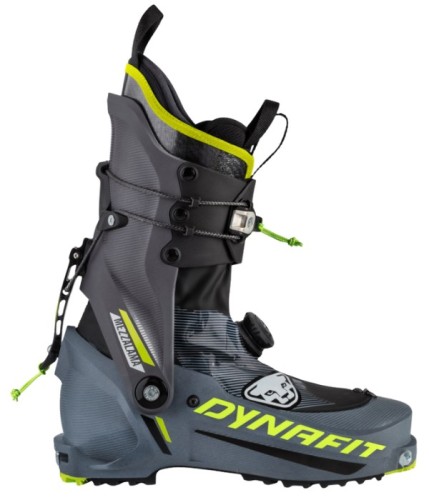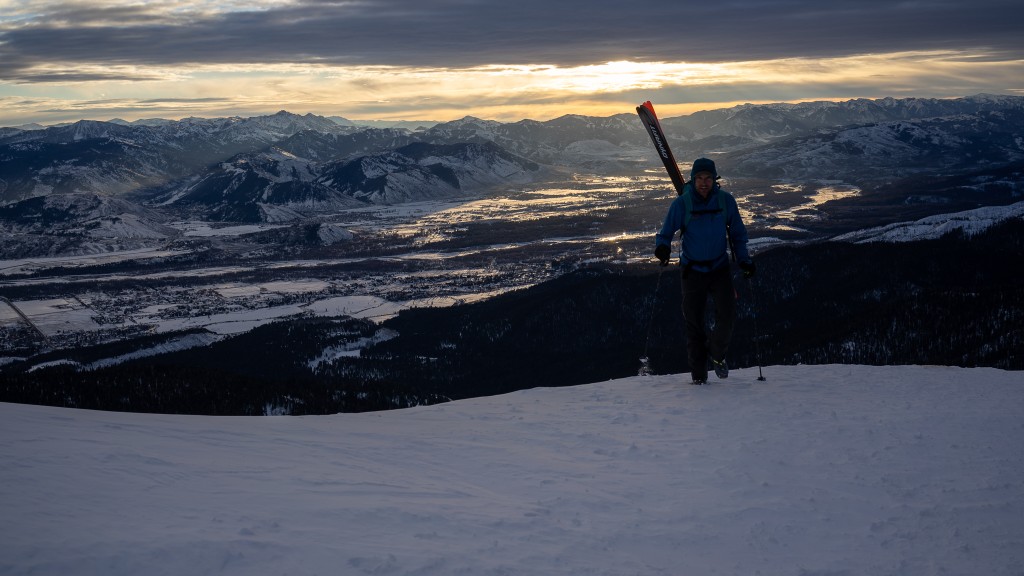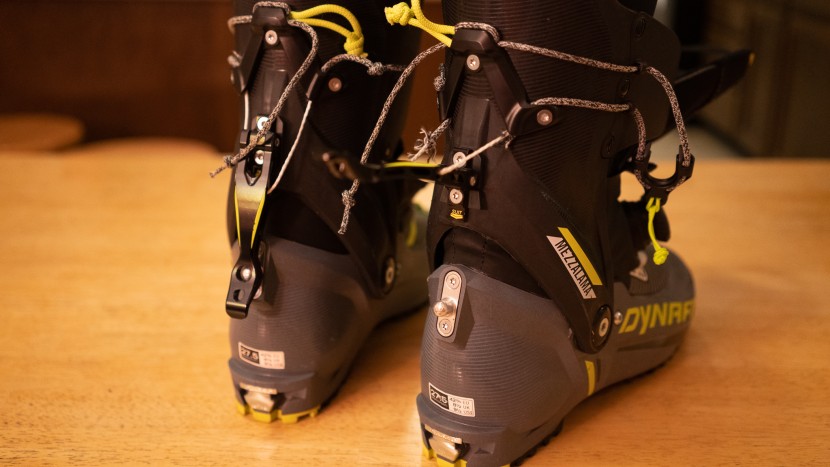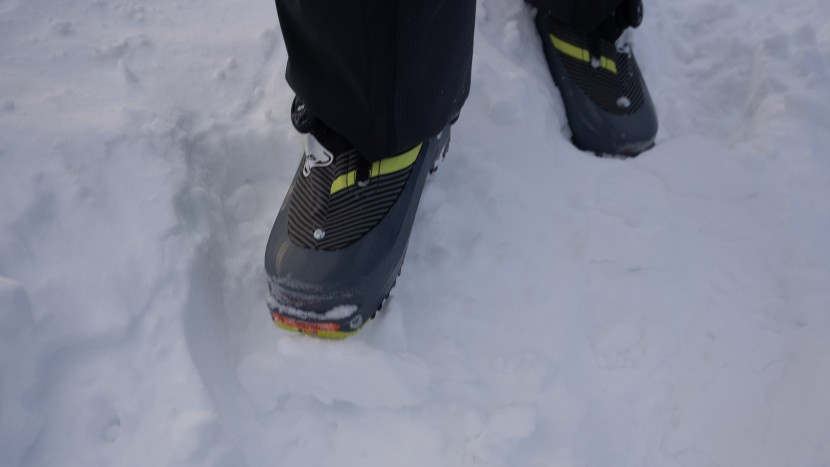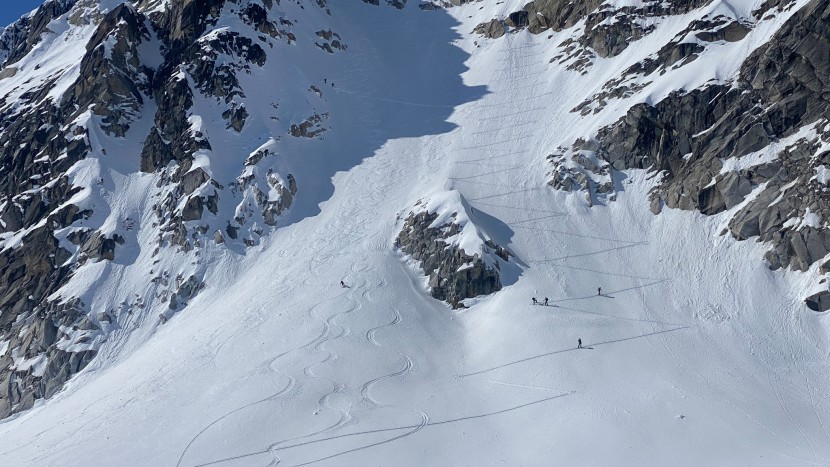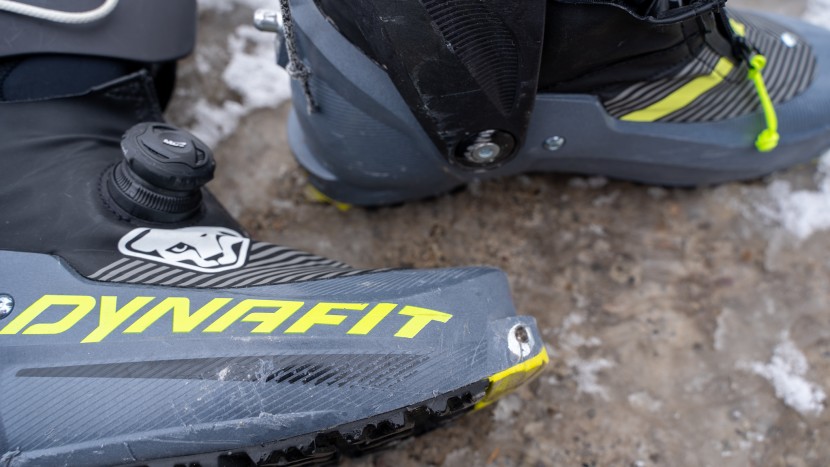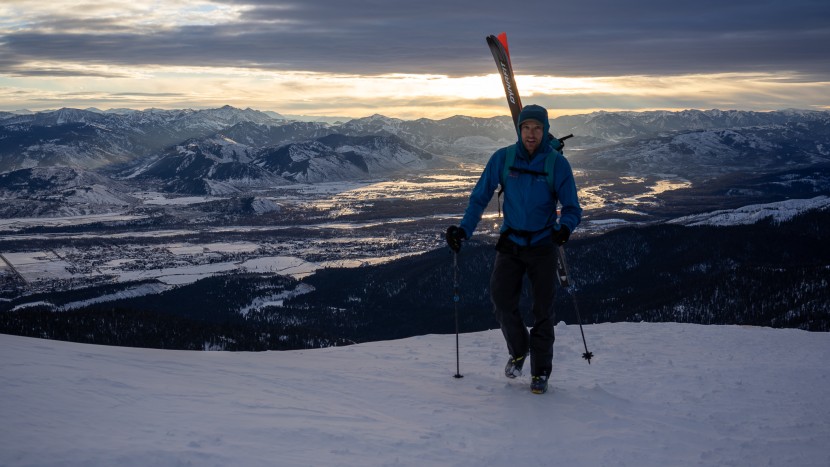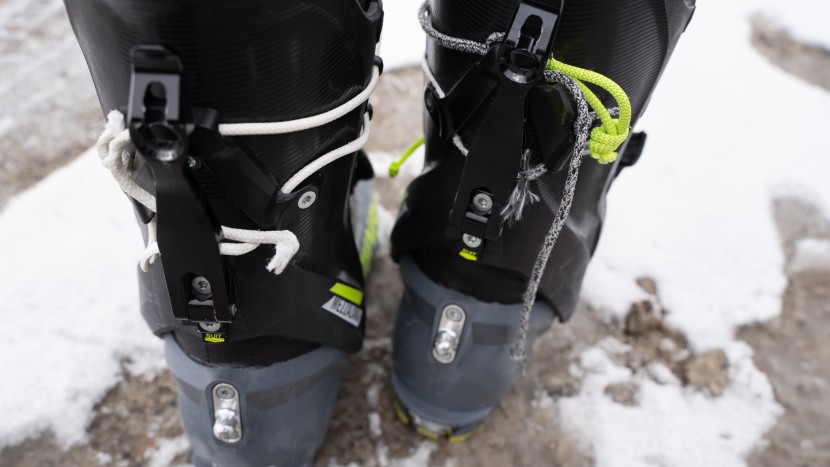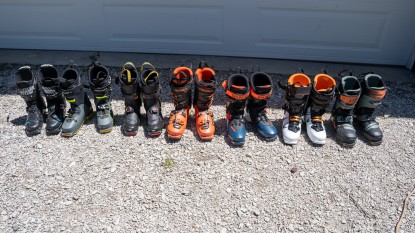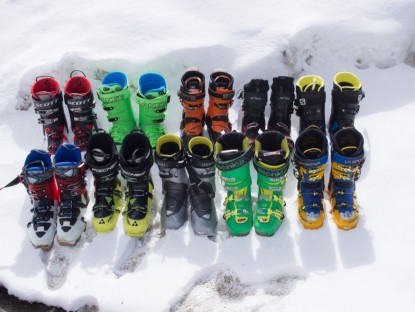Dynafit Mezzalama Review
Our Verdict
Compare to Similar Products
 This Product
Dynafit Mezzalama | |||||
|---|---|---|---|---|---|
| Awards | Best All-Around Backcountry Ski Boot | Best Bang for the Buck | Best Lightweight Backcountry Ski Boot | ||
| Price | $800 List | $899.99 at Evo Compare at 4 sellers | $699 List $524.25 at Backcountry | $639.96 at Evo | $619.96 at Amazon Compare at 2 sellers |
Overall Score  |
|||||
| Star Rating | |||||
| Bottom Line | Low profile, all-around ski boots with a one-move tour mode are hard to find. Awesome options come and go faster than many want. The Mezzalama is the latest hot option in this sub category | Whether a newcomer adjusting from the resort or a seasoned expert gunning for 100+ backcountry days a season, this is the most well-rounded AT boot available | Other boots edged this one out of our highest award, but it should definitely be considered for its well-priced value | A ski boot that approaches perfection but is hindered by missing the mark on a few key functional points doesn't make it there We want it to fit narrower and have a "one move" transition | This is a well-balanced boot for high-volume, high-tempo ski touring and ski mountaineering |
| Rating Categories | Dynafit Mezzalama | Tecnica Zero G Tour... | La Sportiva Vega | Salomon S/Lab MTN S... | Scarpa F1 XT |
| Downhill Performance (35%) | |||||
| Uphill Performance (20%) | |||||
| Weight (20%) | |||||
| Comfort and Fit (10%) | |||||
| Warmth (10%) | |||||
| Ease of Use (5%) | |||||
| Specifications | Dynafit Mezzalama | Tecnica Zero G Tour... | La Sportiva Vega | Salomon S/Lab MTN S... | Scarpa F1 XT |
| Weight per Pair (Size 26.5) | 4 lbs 8 oz | 6 lbs 6 oz | 6 lbs 8 oz | 5 lbs 3 oz | 4 lbs 12 oz |
| Binding Compatibility? | Tech only | MNC, Tech | Tech and DIN AT | Tech only | Tech only |
| Measured Range of Motion (degrees) | 65° | 98° | 60° | 75° | 108° |
| Manufacturer Stated Last Width | 99 mm | 99 mm | 102.5 mm | 99 mm | 100 mm |
| Weight of One Complete Boot, No Insole | 1016 g | 1445 g | 1473 g | 1180 g | 1076 g |
| Weight of One Boot Shell | 772 g | 1212 g | 1220 g | 963 g | 872 g |
| Weight of One Stock Liner, No Footbed | 244 g | 233 g | 253 g | 217 g | 204 g |
| Stated Flex Index | Not Listed | 130 | 115 | Not Listed | Not Listed |
| Liner Design | Tongue | Tongue | Tongue | Tongue | Tongue |
| Shell Material | Grilamid, carbon | Grilamid | Grilamid | Ultramid | Grilamid |
Our Analysis and Test Results
The Dynafit Mezzalama would seem to exist in a crowded space with other boots around this weight point. The “1-Kilo” boot options are indeed expanding. But weight only tells part of the story. Weight, it turns out, is a good proxy for downhill ski performance. There are certainly differences, but the boots that we've used that weigh around 1000 grams all ski pretty similarly. However, weight doesn't tell everything about the uphill performance. As compared to other boots that weigh about the same, the Mezzalama transitions and climbs significantly better.
Uphill Performance
The Mezzalama tours very well. The cuff range of motion is huge. Even more importantly, within that range, the friction is very low. It isn't quite in the realm of skimo race boots, but it is way better than other currently available touring boots. Now, Dynafit sells this as a race boot of sorts, but they also mention its potential further afield. It is that further afield function that we are speaking up for here. As compared to boots that really are suitable for long days on bigger skis in varied snow, the Mezzalama is an amazing tourer.
Part of the great touring performance can be attributed to the close fit of the Mezzalama. We will get into the other pros and cons of this close fit and associated thin liner but let us comment on the touring impacts of a low profile boot. Picture technical climbing in your ski boots. It is easy to see how a smaller boot would climb technical terrain better. Not all skiers are tackling steep rock and ice climbing in their ski boots, but every normal step benefits from that nimble feeling.
Weight
We tested the Mezzalama in size 27. As it turns out, we could have downsized to 26 and been happy. At shell size 27 the Mezzalama weighs 1016 grams per boot. That's 2032 grams or four pounds eight ounces for the pair. Of the 1016 grams per boot, 244 grams are in the liner and the shell weighs 772 grams. 244 grams is pretty heavy for a thin ski boot liner. Much bulkier boots have liners that weigh similar. If one could source a very thin, stiff foam liner that liner might chop 50-80 grams off the weight of the Mezzalama. But, then, maybe you wouldn't have the same free-wheeling touring mode.
By overall weight, the Mezzalama is nothing special. About a third of our tested boots have a single boot weight within a few dozen grams of this mark. If you know you will replace the liner (and so many now do, as a matter of habit. Whether that choice is truly warranted or not) the weight of a boot shell is more important. Because of the relatively heavy liner mentioned above, the Mezzalama shell weight sets it further apart. Some of the boots that are close in overall weight are over one hundred grams heavier when comparing just the shell. All this weight-analysis is useful and important, but, as we note above, it isn't the whole story when it comes to touring performance. Of the hand full of 1-Kilo boots that we have tested, the Mezzalama is definitely the best tourer.
Downhill Performance
They go better downhill than you would think. Our test team used them for skiing 50 degree ice and for high speed powder blasting on 100mm plus skis. There's an adjustment period, to be sure. However, if you remember just how great they go uphill you will be more than willing to make that adjustment. All lightweight ski boots demand centered, “modern” ski technique. You are not going to very well pressure the forward part of the ski. You are definitely not going to do well with sloppy, lunging turns and “back seat” skiing will be immediately punished. If you have well-developed ski technique (and improving that is definitely worth your time, no matter what your current ski ability is) you will readily adjust to the Dynafit Mezzalama.
Let's compare to other boots in this weight class. First, we haven't skied every available boot in this weight range. Notably, new boots with great promise and promotion are constantly entering the fray. That said, the Mezzalama is certainly the best of the otherwise unheralded options. Some boots that weigh the same ski slightly better but some ski much worse. We will keep testing and comparing. Way below we also make specific comparisons in which we “name names”.
Comfort and Fit
The Mezzalama has a neutral fit. The thin liner and shell materials aren't too conducive to extensive boot work. If you have especially wide feet you will want to look at something with more space and more ability to work on the shell. Narrow feet can downsize their Mezzalama and likely make some room in the toe box as needed.
They need to be fit pretty closely to really ski downhill well. This is the same as for any lightweight boots. As noted above, we mistakenly tested a boot that was a little too big for our test team. All that used it, though, found it to still ski pretty well. We have done some extrapolation but also report on exactly what we tested. When we extrapolate we can tell that the Mezzalama would definitely ski better in a size down for us.
Warmth
Here is the greatest liability of the close fit and thin materials required of light ski boots. They don't insulate as well. There has got to be a way to get the shell close to one's foot while also adding insulation on the outside. There are aftermarket products for this, but we are talking about something more elegantly integrated.
Use your Dynafit Mezzalama boots carefully in cold conditions. On cold day trips you are relying on perpetual motion and the ability to glide down and back to a warm car. Push the limits of terrain, temperature, and/or mobility in boots like this and you could pay the price with cold injured feet. Certainly more likely than with sturdier boots.
Ease of Use
Touring mode efficiency plus ease of use are what set the Dynafit Mezzalama apart from close competitors. The important ease of use attribute to us is the “one move” ski-walk mode transition. Just like with skimo race boots the skier, after initial setup and daily donning of the boots, flips one lever at every down/up and up/down transition. No other boot in our test in this weight class that skis this well has such a one-move transition.
The upper cuff closes with the aforementioned lever actuating a string cinch. That string is some sort of sturdy aramid core covered with a nylon sheath. Almost immediately the sheath tore off on both boots. We acquired replacement cord (this stuff is way sturdier than what the boot comes with), performed the replacement on one boot, and cut a piece for the other boot to carry in the field. We went on to test the remainder of the season (over a dozen days, each with multiple transitions) without fully failing the original string. The degradation of the string sheath is not confidence inspiring, but the integrity remains intact over a meaningful time period. Of course, we wish nothing about the boots would fail, but nothing is perfect.
Should You Buy the Dynafit Mezzalama?
These are the speed touring ski boots you might have been looking for. Years ago now the now-discontinued Scarpa Alien RS got us all hooked on light boots that skied well, toured very well, and had a one-move ski/walk mode switch. Since its discontinuation, nothing has filled the same slot until now. The Mezzalama should be on your short list.
What Other Backcountry Ski Boots Should You Consider?
The Mezzalama is now a proven, viable contestant. In terms of relative performance of boots weighing close to 1000 grams, it should be compared directly against the Scarpa F1 LT and the Fischer Travers CS. First, it tours better than these other boots and is more nimble with a more free cuff pivot. However, when it comes to downhill performance, the Mezzalama is close to the Fischer but not as good as the F1 LT. Although it's slightly heavier than any of these boots, the Dynafit TLT X is a better overall boot.


